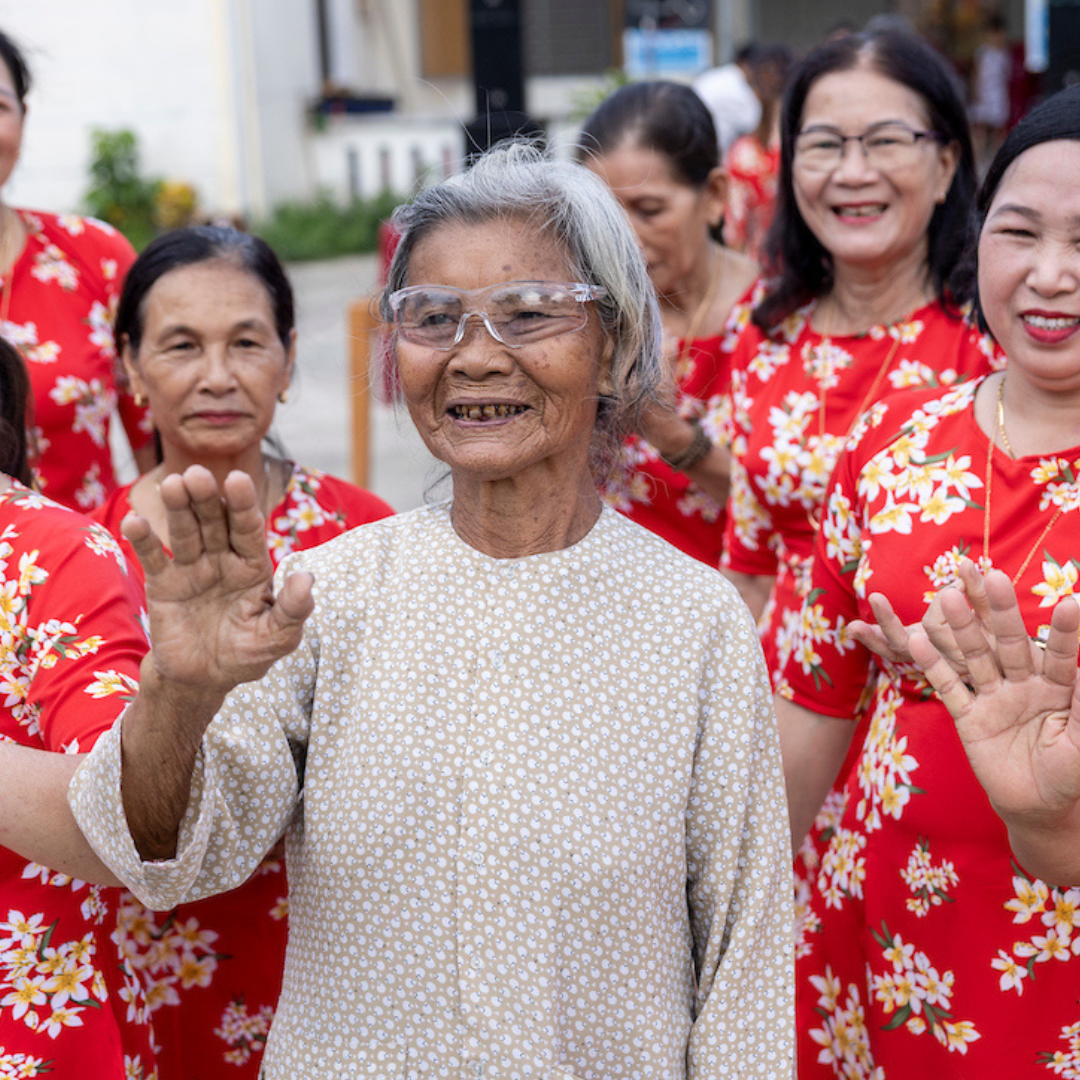Empowering women's voices in eye health

Avoidable blindness not only stops people chasing their dreams, but also affects whole families and communities. The impacts are greater in low and middle income countries.
Over 55% of the world’s blind are women. More than 20 million women in the world are blind and a further 120 million are vision impaired. The situation is the same in China. According to statistics from The International Agency for the Prevention of Blindness, 8.64 million are blind in China and over half are women.
Guangxi is one of the provinces where The Fred Hollows Foundation works to achieve gender parity. The public is not aware of gender inequality in medical services. The lack of convenient transportation and low awareness of eye health, the lack of decision-making power at home, and the deep involvement in day-to-day housework diminishes the opportunities for women to reach much-needed eye care services.
Nurse Wei Dan-qing from Guangxi
Wei Dan-qing from Guangxi is a nurse who has joined gender equity training provided by The Fred Hollows Foundation.
She said: “There was once a female cataract patient who never left her husband from the moment she stepped into the hospital until she went home. Whatever decisions she had to make, she asked for the man’s opinion. She was around 50 years old and did not have thoughts of her own. We can tell that she has low family status. Her case made me realise that there are women who still believe strongly in man working outside and women staying at home. There is more work we need to do to promote gender equity.”
“There are many obstacles that women face when they come to the hospital for treatment. They may encounter difficulties leaving home, or only speak dialects which make it difficult to communicate with the medical staff. They have lower educational levels and are sometimes unable to afford the medical expenses,” said Wei.
Wei believes that medical staff should proactively visit villages to screen patients and provide eye checks for women who find it inconvenient to leave home. Communication via WeChat can also be established to promote the importance of eye health and raise public awareness.
The Fred Hollows Foundation works to improve opportunities women can access eye care services. In China we advocate for gender equity policies, launch activities to improve women’s access to services, develop and promote gender sensitive eye health teaching materials, and encourage women and girls to participate in eye care activities.
To celebrate International Women's Day in 2021, The Fred Hollows Foundation spoke with doctors and nurses who joined the gender equity training. Here are their lessons.
Eye doctor Wang Hui-bin
“Gender stereotyping is everywhere in the society. To achieve real gender equity we need to work more to educate parents and the children.” Wang Hui-bin, Eye Doctor, Guang Yang County, Guangxi
“We find many new things to learn in the gender equity training. We learned how to do surveys, raise questions, learn about the topic and participate in group discussion. We found the training very useful and learned a lot about gender equity and its importance.” Wei Dan-qing, Nurse, Guan Yang County, Guanxi
“We need to help female patients more especially those elderly living in remote villages and have low education levels. Many of us may think the society has already achieved equality but many areas can still be further improved.” Cai Zi-jing, Nurse, Xing Ye County, Guangxi
“More women have glaucoma, dry eyes and presbyopia than men because women live longer. Women are more sensitive than men and require more attention in communications. We should think of ways to improve communications with women, raise awareness by doing more education and making it lively.” Nurse Zhao, Huize County, Yunnan
“At first I was not very aware to gender inequality and treated all patients equally. But after the training I start to pay more attention to needs of women and encourage them to speak up. We often witness men shouting at women or cutting into the queue of screening in villages. This is hard for women to accept,” Dr. Zhang Bin, He Pu County, Guangxi
“Women are more aware of their looks when wearing glasses. They do not want glasses to affect how they look.” Dr Zhao, Hu Tu Bi, Xinjiang
“I find more women seeking for help than men in day-to-day work. I believe women care for their own eye health more.” Dr Zhang in Sha Wan, Xinjiang